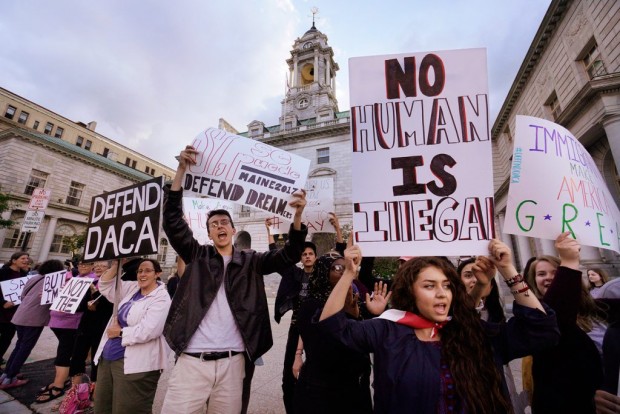28 January 2018
On This Day - protest song with enduring relevance

When Woody Guthrie wrote of nameless deportees seven decades ago he could not have envisioned that today his words would still be a rallying call to all those who advocate for the rights of migrant workers and refugees.
On this day 70 years ago an incident took place that inspired one of the world's most famous protest songs, the message of which is still as relevant today as when it was first written.
On January 28, 1948 a plane carrying migrant farm workers due to be deported to Mexico from the United States crashed near Los Gatos Canyon, Fresno County, California, killing 32 people.
The crash inspired legendary folk singer Woody Guthrie to write Deportees, (Plane Wreck at Los Gatos), initially as a poem, after reading newspaper reports of the crash which did not list the names of the 28 migrant farm workers killed - only the four Americans killed - instead referring to them simply as 'deportees.'
The Mexican victims of the crash, as well as being initially nameless, were buried in a mass grave in California with a headstone marked only as 'Mexican Nationals.'
Over the last 70 years, the song, often simply known as 'Deportees,' has been recorded by numerous artists including Pete Seeger, The Dubliners, Joan Baez, Bruce Springsteen, The Byrds and many others.
It has also been extensively covered by Irish folk singers, most notably Paddy Reilly and Christy Moore.
The crash also inspired well known US civil rights activist, Cesar Chavez, to found the United Farm Workers Union to advocate for rights of migrant workers.
While the subject of the song may have been the 1948 crash, the song has become renowned as a biting critique of the USA's treatment of what it considers to be illegal immigrants.
As such, it is still as relevant today as when it was first written 70 years ago, particularly given the polices of the Trump administration.
Once again, immigration policies are to the fore in US political life, just as they were in 1948.
While many of the undocumented workers in the US at present are hispanic, there are also people from many other countries in the same situation, including Irish people.
For many years, Sinn Féin and other political parties, church leaders and others have been campaigning for the rights of the 'undocumented Irish' - Irish people living in the US without visas.
It is estimated there are around 50,000 'undocumented' Irish people currently living and working in the US, some who have been there for many years and now have long-established family ties.
Sinn Féin President Gerry Adams has repeatedly raised the case of the 'undocumented' Irish and called on both the US administration and the Irish government to step up efforts to resolve the problem.
In 2012, then US President Barak Obama brought in measures to offer protection to children who entered or where brought into the US illegally. The Deferred Action for Childhood Arrivals (DACA) legislation allowed people brought into the US illegally as children the temporary right to live, study and work in America.
However, Trump is now planning to scrap DACA, which makes almost one million people, including many Irish people, at risk of deportation.
Those at risk of deportation are known in the US media as 'Dreamers' (after the failed Development, Relief and Education for Alien Minors Act) and are mounting a vocal and growing campaign for undocumented citizens living in America.

Despite this, these has been a marked increase in the number of people deported from the US since Trump came to office.
And it is not just a problem in the US. In Europe, the EU is sending refugees back to their country of origin if they are on a list of so-called 'safe countries'. However this list of 'safe' countries includes regimes with appalling human rights records.
Sinn Féin MEP Martina Anderson has repeatedly challenged the EU over this policy and called for a humanitarian approach to refugee policies instead of merely deporting men, women and children to hostile countries.
When Woody Guthrie wrote of nameless deportees seven decades ago he could not have envisioned that today his words would still be a rallying call to all those who advocate for the rights of migrant workers and refugees.
Follow us on Facebook
An Phoblacht on Twitter
Uncomfortable Conversations

An initiative for dialogue
for reconciliation
— — — — — — —
Contributions from key figures in the churches, academia and wider civic society as well as senior republican figures





